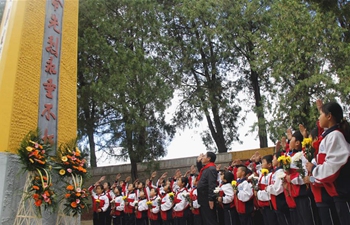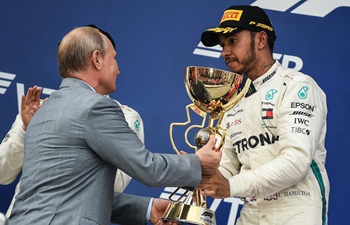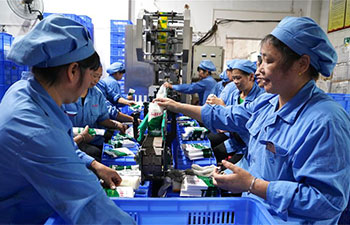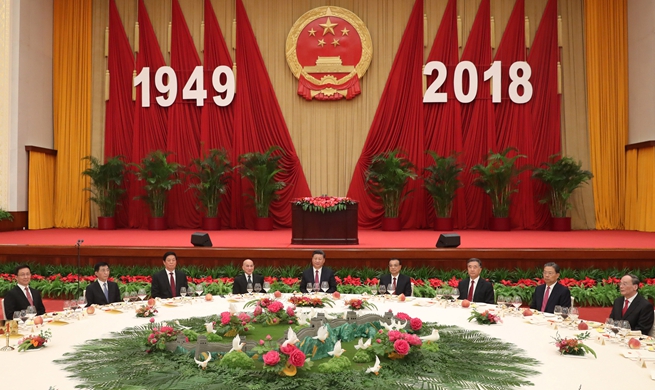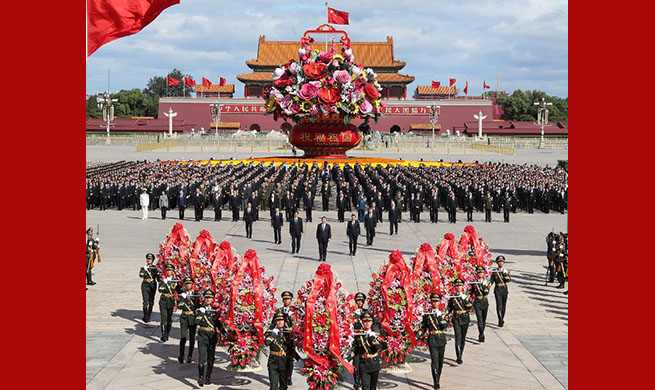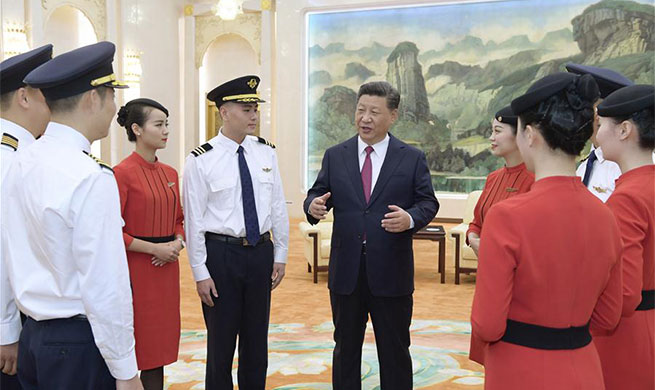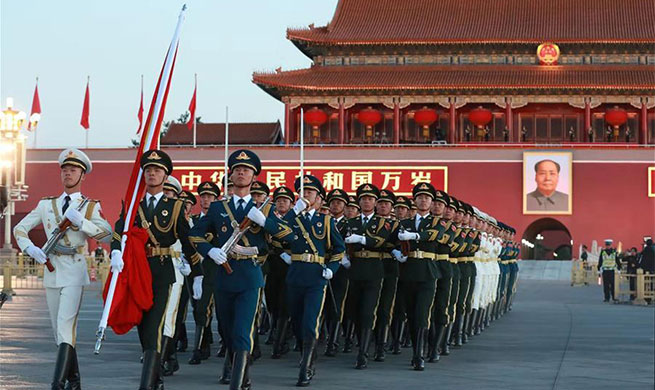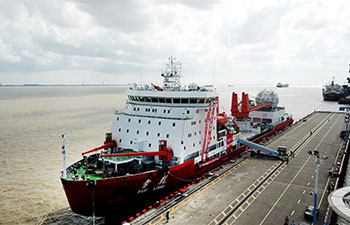by Burak Akinci
ANKARA, Sept. 30 (Xinhua) -- Turkey and Germany have decided to move toward reconciliation during Turkish President Recep Tayyip Erdogan's visit to Berlin, said analysts.
Erdogan travelled to Germany's capital Berlin on Thursday for a three-day state visit.
He had talks with his German counterpart Frank-Walter Steinmeier and German Chancellor Angela Merkel, aiming to turn a new page in bilateral ties.
Pro-government Turkish press said the visit aims to repair the broken relationship at a time when Turkey is trying to overcome a major economic turbulence.
The two NATO countries reached nearly a breaking point as their leaders vociferously accused each other after a failed coup attempt against Erdogan in 2016.
However, Ankara and Berlin are now strongly committed to resetting their partnership.
"In our meeting with Merkel, we reached consensus on reviving cooperation mechanisms which have been inactive for a while," Erdogan said on Friday during a joint press conference with Merkel.
"Turkey needs Germany and Germany needs Turkey too," Mustafa Nail Alkan, an international relations professor from Gazi University, told Xinhua.
"Ankara wants Berlin's support regarding its economic troubles and Germany wants Turkey to abide by the 2016 deal on migrants," he said.
Additionally, Germany and Turkey's deteriorating ties with the United States, as well as Turkey's role in Syria, especially in securing a deal on Idlib and preventing a massive refugee crisis, also draw the two countries together.
"As Turkey's ties with the U.S. are faltering, it needs a strong partner to rely on. Germany is undoubted to be the partner who wants and needs an economically stable Turkey," noted Alkan.
Germany is one of Turkey's largest trading partners, with 7,000 German firms operating in Turkey, he said.
Berlin is also interested in massive infrastructure projects. Germany's Siemens has already struck a 340-million-U.S.-dollar deal with Turkey for 10 high-speed trains.
Ankara, for its part, wants Germany to help revive its dormant ties with the European Union and overhaul the Turkey-EU customs union.
"Mutual interests have been highlighted during Erdogan's trip. Trade wars and economic protectionism by U.S. President Donald Trump have especially brought the two nations together in recent months," Serkan Demirtas, a political analyst and journalist, told Xinhua.
"Developments on the Iran nuclear deal and the Syrian crisis are also factors in the German-Turkish rapprochement," he added.
The seven-year-long Syrian war is an area of mutual concern and deep interest. Merkel said during the press conference that she agreed with Erdogan to hold a four-way summit in October to discuss the situation of Syria's Idlib.
Idlib lies between southern Turkey and the Syrian coastal province of Latakia. Russia and Turkey agreed recently to set up a buffer zone around Idlib, the last major rebel stronghold in the Syrian war.
But differences still and will remain in other fields between the two seemingly reconciled countries' path to a full normalization.
For instance, Berlin refuses to extradite hundreds of Turks accused by Ankara of involvement in the failed coup and ban the Gulen movement considered by Turkey as a terrorist organization.
Ankara also accuses Berlin of being lenient toward members of the Kurdistan Workers' Party on its soil.
"We have to see the glass as half full and consider the Turkish-German reconciliation as only the start of a full normalization. At least dialogue channels will now be open," said Demirtas.
